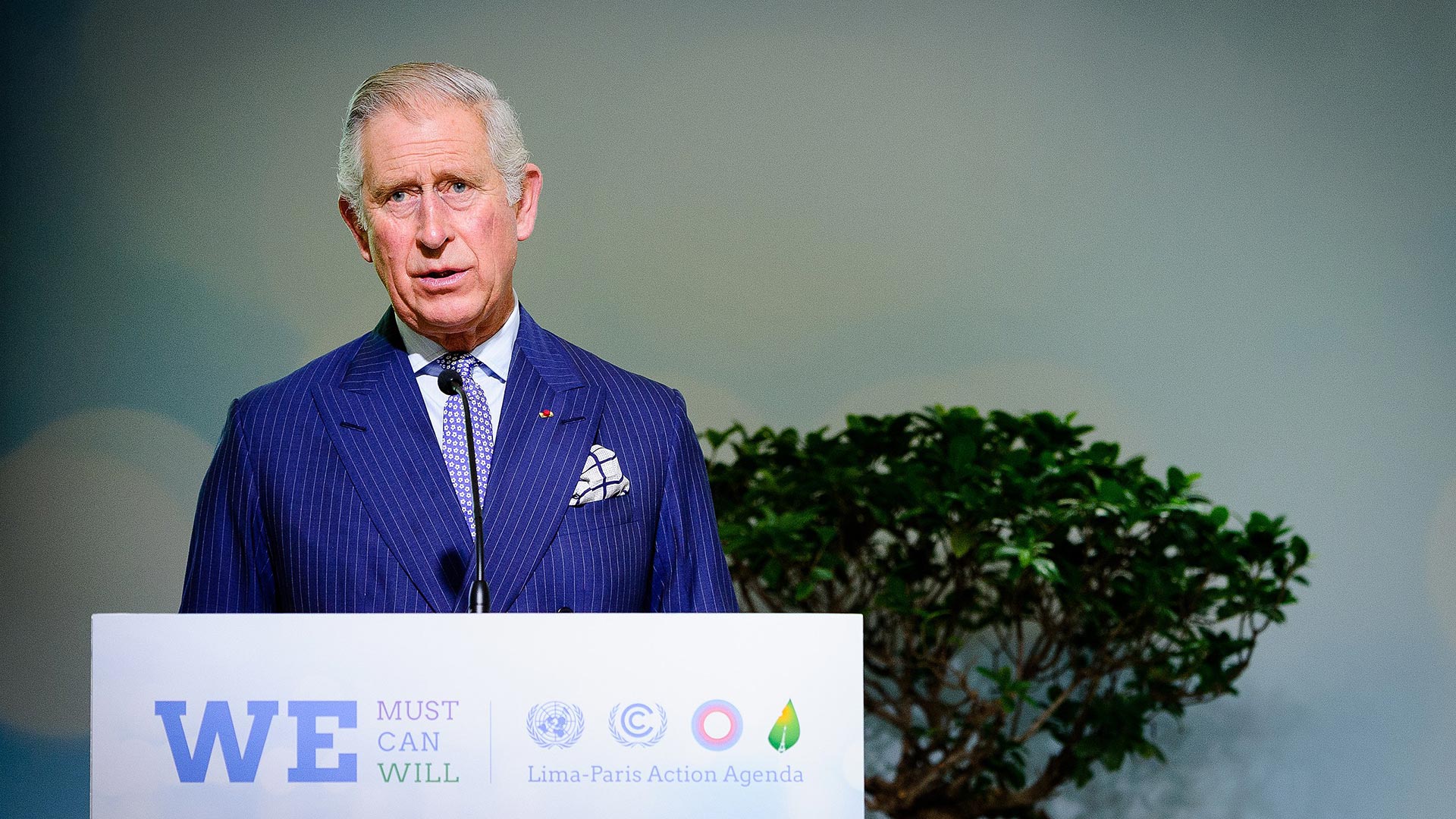
The King of sustainability
The private sector has a crucial role to play in delivering the solutions we so desperately need for nature, people, and planet, but no industry or business can do it alone.King Charles III
Our new King – a champion of sustainability
As the coronation of the UK’s new King approaches, we at Simply Sustainable reflect on his commitment and dedication of championing sustainability whilst engaging the business community to work collaboratively and create responsible and inclusive organisations that deliver responsible growth.
For over fifty years, The Prince of Wales (as he was known) has used his unique position to champion action for a sustainable future. It hasn’t always been straight-forward and has faced significant criticism for meddling in government policy. Who can forget his much-famed ‘spider memos’ that caused such a stir? Notwithstanding, what was once interpreted as nonsense many years ago has become mainstream and a key risk to business profitability and success. A visionary, some might say.
In the context of global challenges that include the climate crisis, deforestation and ocean contamination and pollution, our new King has promoted sustainability to ensure that the natural assets upon which we all depend among other things soil, water, forests, a stable climate and fish stocks endure for future generations. His passion is as prominent as his position in the royal family.

As an organisation that has advocated for sustainable growth in business for nearly fourteen years, we feel aligned with his thinking and understand the frustrations he may have felt along the way. Our legacy at Simply Sustainable, like his, has enabled us to provide expert advice across a backdrop of increasing regulation and scrutiny. We are grateful that there has been such a high-profile campaigner and realise that his obligations as King will keep him away publicly pushing for legislative and policy change. To support the celebrations of the coronation we wanted to highlight the significant areas of ESG and sustainability he has championed during his time as Prince of Wales:
Business in the Community
King Charles has been a vocal and active champion of sustainability in business, promoting the adoption of sustainable practices and encouraging collaboration among business leaders to address environmental challenges.
As the Prince of Wales, Charles was the founding royal patron of Business in the Community (BITC), which formed in 1982 and launched a campaign for racial workplace equality in 1995. For those who have been dedicated to working in the field for many years, BITC has always been a beacon of best practice in what was Corporate Sustainability Reporting (CSR) and then Environmental, Social and Governance (ESG) and sustainability. Today, the organisation works and campaigns with more than 600 businesses, including 75% of the FTSE 100, alongside other stakeholders, with the aim of making society fairer and to support the transition to a net-zero economy.
Some key responsible business initiatives which have been pivotal to improving business practices are as follows:
- Launched in 2002, The BITC Index (a precursor to many ESG indices and reporting frameworks), a management and benchmarking tool that enabled companies to effectively measure, monitor, report and improve their impacts on society and the environment. Well ahead of its time and known to make many a CSR practitioner shudder with is detailed level of disclosure, the index proved to become a commercial tool in evaluating the correlation between responsible impact and positive share price. An evolution to the tool came in 2019, where it became the responsible business tracker that was aligned more closely to the UN’s Sustainable Development Strategy International Group (SDS).
- Business in the Community has been committed to empowering employers to accelerate change for ethnically diverse employees. BITC has worked with its network of private and public sector partners to offer practical advice and share new insights to drive long-term change. In 2021, the findings of the McGregor review, led BITC to create the Race at Work Charter, with five calls to action to improve race equality, inclusion and diversity in the workplace. In 2021 the Charter was expanded to include allyship and inclusive supply chain commitments, meaning signatory organisations are now asked to make seven commitments. In addition, they have been calling on the government to mandate ethnicity pay gap reporting.
Launching the Sustainable Markets Initiative
In 2020, Prince Charles established the Sustainable Markets Initiative (SMI), aiming to kickstart action towards a greener future, encouraging the private sector to accelerate their efforts. Under the mandate of the Terra Carta which is the guiding mandate for the Sustainable Markets Initiative, providing a proposed set of principles to 2030 that puts Nature, People and Planet at the heart of global value creation.
The Sustainable Markets Initiative’s mission is to build a coordinated global effort to enable the private sector to accelerate the transition to a sustainable future. Key impacts to date:
- More than 500 CEOs are part of the initiative, including the heads of some of the world’s biggest financial institutions. This means they have signed up to the SMI’s ‘Terra Carta’ pledges.
- The SMI Task Forces are comprised of private sector CEOs. The purpose of the Task Forces is to drive collective action towards a sustainable future. While each Task Force focuses on a different sector, they are consistent in structure. No other ESG/Sustainability initiative or collective has this many committed global CEOs involved.
- In addition, The SMI focuses on significant economic growth opportunities in areas such as the circular bioeconomy, ecotourism and green public infrastructure. The only way to reduce emissions at the scale required, short of a ban on fossil fuels, is to accelerate the development, implementation and scaling up of carbon capture use and storage, both nature-based and engineered to buy precious time.
Duchy Organic – creating the ultimate sustainable business brand
Duchy Originals was founded by Prince Charles in 1990 to market produce from his farm. It has since grown into the largest organic food and drink brand in the United Kingdom, according to the company. In the year through March 2021, Duchy Originals earned nearly £3.6 million ($4.1 million) before taxes.
From the beginning, all profits have gone to charitable causes. It operates entirely separately from the Duchy of Cornwall, which is the private estate from which The Prince of Wales derives his annual income. The brand prides itself on its organic farming methods and concentrates on multiple enterprises with a mix of livestock and arable production.
The first Duchy Originals product was an oat biscuit sold in 1992. Initially, items bearing the brand were only found in high-end shops such as Harrods and Fortnum & Mason, though they later expanded into outlets like Waitrose, which caters to mass market consumers.
Using the world stage to promote sustainability
Up until the death of his mother, the Queen, Charles played a pivotal role on the world stage, using his convening power to connect business leaders with NGOs and community groups. Before the G-7 summit commenced in Cornwall, Prince Charles urged businesses to tackle the climate emergency alongside government, adding that unlocking cash within the private sector was the key to winning the battle against global warming and biodiversity loss.
In 2021, King Charles was heavily involved in COP26, the United Nations Climate Change Conference. He spoke in front of world and business leaders at the opening ceremony, issuing an urgent call for action:
We have a potentially game changing opportunity to drive forward the partnerships between government, business and private-sector finance that are absolutely vital if we are to win the battle to combat climate change and biodiversity loss… unless we can actually unlock the private sector’s resources and innovation, with the public sector setting the framework of incentives and regulation, we just don’t stand a chance of solving this existential crisis that we have been engineering over the years.King Charles III
Recently he has pushed world leaders to more actively engage with the business community to unlock the trillions of dollars that could help find solutions, saying: “We need a vast military-style campaign to marshal the strength of the global private sector. With trillions at its disposal.” He has called for governments to use incentives and regulations to encourage private-sector investment in climate action, and for the value of nature to be recognised on companies’ balance sheets.
Walking the talk
As well as launching large-scale initiatives and working with governments and global business leaders, King Charles has made some adjustments in his personal life to reduce his environmental impact and demonstrate the extent of the commitment to mitigating climate change.
He has disclosed some recent swaps he had made, including switching the heating of Birkhall on the Balmoral estate in Scotland, to biomass boilers and installing solar panels at his private residence at Clarence House, private houses at Highgrove and Raymill and installed a further 424 at Duchy Home Farm, generating over 80,000kWh electricity annually – enough to power 20 average houses. He also revealed, interestingly, that he had his Aston Martin converted to run on bioethanol made from cheese and wine.
As early as 1990, businesses wanting a Royal Warrant for goods or services supplied to Charles have had to demonstrate a responsible approach to environmental and social issues. Charles himself has farmed organically since 1990, planting more than 15 miles of hedgerows and hosting more than 1,000 people per year at his Duchy Home Farm to teach them about farming principles and practices that promote healthy soil, livestock and produce.

